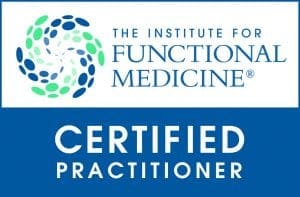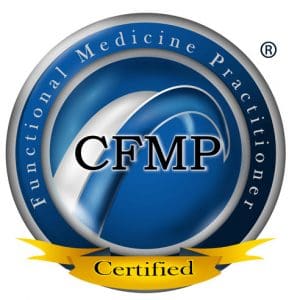The “pill for every ill†therapeutic approach is not enough to ensure its health improvement. In fact, ACC/AHA clinical guidelines are more interested in the risk evaluation and prevention of cardiovascular disease. Consequently, this new perspective sets the pathway for implementing a proactive therapy to treat dyslipidemia, metabolic syndrome, and other comorbidities.
Proactive therapy: Look for other treatments!
Statin therapy is the cornerstone of lipid-lowering therapy (LLT) due to the benefits of lowering cholesterol and LDL-C levels. In fact, statin therapy is associated with preventing primary and secondary atherosclerotic cardiovascular disease (ASCVD). However, numerous patients treated with statin still experience CV events and statin-related secondary effects.
PCSK9
&
The “pill for every ill†therapeutic approach is not enough to ensure its health improvement. In fact, ACC/AHA clinical guidelines are more interested in the risk evaluation and prevention of cardiovascular disease. Consequently, this new perspective sets the pathway for implementing a proactive therapy to treat dyslipidemia, metabolic syndrome, and other comorbidities.
Table of Contents
Proactive therapy: Look for other treatments!
Statin therapy is the cornerstone of lipid-lowering therapy (LLT) due to the benefits of lowering cholesterol and LDL-C levels. In fact, statin therapy is associated with preventing primary and secondary atherosclerotic cardiovascular disease (ASCVD). However, numerous patients treated with statin still experience CV events and statin-related secondary effects.
PCSK9
New treatments to lower LDL-C levels have been proposed, one being monoclonal antibodies targeted to inhibit proprotein convertase subtilisin/Kexin type 9 (PCSK9). Currently, there are two FDA-approved therapies to treat heterozygous familial hypercholesterolemia, alirocumab, and Evolocumab. Also, Evolocumab indicated for homozygous familial hypercholesterolemia. Conversely, each treatment’s application derives from the “test don’t guess†approach, focusing on providing personalized treatment.
Medical, nutritional treatment
The inclusion of different nutritional approaches to reduce CVD risk have been the focal point of many research investigation in the last 10 years. Consequently, the “avoid the salt†approach is no longer the only tool under clinicians’ belt.
| Mediterranean Diet: The cardioprotective effects associated with MD are mediated by collective mechanisms such as Improved vascular function, reduced inflammation, lower ROS levels, enhances NO utilization, improved lipid profiles. All of these mechanisms reflect on improved cardiovascular health. |
| Plant-based Diet: A low-frequency consumption of animal foods defines it. The inclusion of high-quality plant foods like whole grains, fruits, vegetables, and nuts is associated with lower cardiovascular risk frequency and better outcomes. The overall health benefits are reflected in the maintenance of a healthy weight, enhancement of glycemic control, improvement of lipid profile, blood pressure reduction, decreased inflammation, and improved gut microbial profile. |
| Low-fat Diet: A wide variety of Low-fat diets have been used in trials and proven beneficial. In a randomized controlled trial with 48,835 postmenopausal women aged 50–79 y; 40% were randomly assigned to a low-fat dietary pattern intervention (target of 20% of energy from fat), and 60% were randomly assigned to a usual diet comparison group. This trial resulted in a risk reduction of cardiac heart disease and lower stroke risk. |
Proactive risk evaluation: look for other markers.
As mentioned before, patients with statin therapy may experience CV events. Consequently, this makes us think that maybe we are not considering the whole ecosystem of CVD. LDL- C is an independent factor of cardiovascular disease. However, LDL-C levels are not elevated in patients with coronary heart disease (CHD). Therefore, to assess CVD risk, we might want to look at lipoprotein fractions:
Apolipoproteins
ApoB: is present in small dense LDL particles, intermediate-density lipoprotein, and very-low-density lipoprotein. It reflects the total number of atherogenic particles because one particle of Apo B is present in each one of these molecules. ApoB has another subtype, ApoB-48 can be found in dietary triglycerides and free cholesterol from the gut lumen.
ApoA: has two subtypes, ApoA-1 and ApoA-II. ApoA-1 is the main constituent of HDL, which removes excess cholesterol from tissues. Besides, ApoA-II inhibits hepatic and lipoprotein lipase by reducing plasma HDL levels.
ApoB/ApoA-1 ratio represents the balance between atherogenic and anti-atherogenic cholesterol balance in plasma. In fact, this marker is a vital predictor of myocardial infarction (MI) risk, these conclusions were found in large studies such as AMORIS (Apolipoprotein-related MOrtality RISk). Other large studies, like INTERHEART and PRIME, concluded that ApoB/ApoA-1 ratio was a superior marker to estimate acute MI risk compared to other cholesterol ratios.
TMA-O
Trimethylamine oxidase is the metabolized form of Trimethylamine (TMA), a tertiary amine where three methyl groups surround the central nitrogen atom. TMA is produced by the human gut’s bacteria and then metabolized to TMA-O by flavin monooxygenase- 3 (FMO) enzyme activity in the liver. TMAO is implicated in the formation of atherosclerotic plaque by induction of upregulation of macrophage scavenger receptors’ expression.
Besides, TMAO has been shown to inhibit reverse cholesterol transport (RCT), the mechanism through which cholesterol is removed from peripheral macrophages and transported to the liver, recycled for cholesterol synthesis.
Theories support the idea that this CVD risk marker can be influenced by dysbiosis since elevated TMA levels are associated with higher amounts of Firmicutes. Therefore, the treatment of regulating the microbiome is essential for the management of this marker.
Proactive tip: how does inflammation affect the dyslipidemia ecosystem?
Assessing CVD risk has to take into account the interplay between inflammation and the development of this condition. Recently, the use of high sensitivity C- reactive protein (CRP) has been proposed as a marker for circulation and inflammation.
As a reactive phase protein, CRP is induced by IL-6, IL-1b, and TNF-a in the liver. However, CRP levels are detectable in the vessel walls in the early stages of atherogenesis. The interplay between LDL and CRP induces a proinflammatory response by promoting the transformation of macrophages into foam cells. Also, this complex contributes to the progression of atherosclerosis and tissue damage.
Besides this, nitric oxide can be inhibited by CRP, leading to endothelial dysfunction and hypertension. Adding to this, CRP can create the perfect stroke by activating the NF-KB pathway.
Advanced body composition assessment
Body composition is a very important part of the patient’s environment, Fat distribution plays a vital role in the risk evaluation of CVD. Therefore in El Paso Functional Clinic we have the best piece of equipment to help you get on the right track.
The fact that CVD is the most common cause of death in the United States is disturbing. However, the work has to be done, and preventing CVD is the next step. The proactive way to treat dyslipidemia includes assessment, dietic therapy, and stress management. Improving the ecosystem of a patient will always provide a better outcome in chronic conditions. – Ana Paola RodrÃguez Arciniega, MS
References
Kaddoura, Rasha et al. “Efficacy and safety of PCSK9 monoclonal antibodies: an evidence-based review and update.â€Â Journal of drug assessment vol. 9,1 129-144. 11 Aug. 2020, doi:10.1080/21556660.2020.1801452
Jun, Ji Eun et al. “ApoB/ApoA-I ratio is independently associated with carotid atherosclerosis in type 2 diabetes mellitus with well-controlled LDL cholesterol levels.â€Â The Korean journal of internal medicine vol. 33,1 (2018): 138-147. doi:10.3904/kjim.2017.396
Badimon, Lina et al. “C-Reactive Protein in Atherothrombosis and Angiogenesis.â€Â Frontiers in immunology vol. 9 430. 2 Mar. 2018, doi:10.3389/fimmu.2018.00430
Satija, Ambika, and Frank B Hu. “Plant-based diets and cardiovascular health.â€Â Trends in cardiovascular medicine vol. 28,7 (2018): 437-441. doi:10.1016/j.tcm.2018.02.004
Widmer, R Jay et al. “The Mediterranean diet, its components, and cardiovascular disease.â€Â The American journal of medicine vol. 128,3 (2015): 229-38. doi:10.1016/j.amjmed.2014.10.014
Additional Online Links & Resources (Available 24/7)



Online Appointments or Consultations:Â bit.ly/Book-Online-Appointment
Online Physical Injury / Accident Intake Form: bit.ly/Fill-Out-Your-Online-History
Online Functional Medicine Assessment: bit.ly/functionmed
Disclaimer
The information herein is not intended to replace a one-on-one relationship with a qualified health care professional, licensed physician, and not medical advice. We encourage you to make your own health care decisions based on your research and partnership with a qualified health care professional. Our information scope is limited to chiropractic, musculoskeletal, physical medicines, wellness, sensitive health issues, functional medicine articles, topics, and discussions. We provide and present clinical collaboration with specialists from a wide array of disciplines. Each specialist is governed by their professional scope of practice and their jurisdiction of licensure. We use functional health & wellness protocols to treat and support care for the musculoskeletal system’s injuries or disorders. Our videos, posts, topics, subjects, and insights cover clinical matters, issues, and topics that relate to and support, directly or indirectly, our clinical scope of practice.* Our office has made a reasonable attempt to provide supportive citations and has identified the relevant research study or studies supporting our posts. We provide copies of supporting research studies available to regulatory boards and the public upon request. We understand that we cover matters that require an additional explanation of how it may assist in a particular care plan or treatment protocol; therefore, to further discuss the subject matter above, please feel free to ask Dr. Alex Jimenez or contact us 915-850-0900.  Read More…
Dr. Alex Jimenez DC, MSACP, CCST, IFMCP*, CIFM*, CTG*
email:Â coach@elpasofunctionalmedicine.com
phone: 915-850-0900
Licensed in Texas & New Mexico
General Disclaimer
Professional Scope of Practice *
The information herein on "Dyslipidemia: The Proactive Therapy" is not intended to replace a one-on-one relationship with a qualified health care professional or licensed physician and is not medical advice. We encourage you to make healthcare decisions based on your research and partnership with a qualified healthcare professional.
Blog Information & Scope Discussions
Welcome to El Paso's Premier Wellness and Injury Care Clinic wellness blog, where Dr. Alex Jimenez, DC, FNP-C, a board-certified Family Practice Nurse Practitioner (FNP-C) and Chiropractor (DC), presents insights on how our team is dedicated to holistic healing and personalized care. Our practice aligns with evidence-based treatment protocols inspired by integrative medicine principles, similar to those found on dralexjimenez.com, focusing on restoring health naturally for patients of all ages.
Welcome to El Paso's Premier Wellness and Injury Care Clinic & wellness blog, where Dr. Alex Jimenez, DC, FNP-C, a board-certified Family Practice Nurse Practitioner (FNP-C) and Chiropractor (DC), presents insights on how our team is dedicated to holistic healing and personalized care. Our practice aligns with evidence-based treatment protocols inspired by integrative medicine principles, similar to those found on dralexjimenez.com, focusing on restoring health naturally for patients of all ages.
Our areas of chiropractic practice include Wellness & Nutrition, Chronic Pain, Personal Injury, Auto Accident Care, Work Injuries, Back Injury, Low Back Pain, Neck Pain, Migraine Headaches, Sports Injuries, Severe Sciatica, Scoliosis, Complex Herniated Discs, Fibromyalgia, Chronic Pain, Complex Injuries, Stress Management, Functional Medicine Treatments, and in-scope care protocols.
Our information scope is limited to chiropractic, musculoskeletal, physical medicine, wellness, contributing etiological viscerosomatic disturbances within clinical presentations, associated somato-visceral reflex clinical dynamics, subluxation complexes, sensitive health issues, and functional medicine articles, topics, and discussions.
We provide and present clinical collaboration with specialists from various disciplines. Each specialist is governed by their professional scope of practice and their jurisdiction of licensure. We use functional health & wellness protocols to treat and support care for the injuries or disorders of the musculoskeletal system.
Our videos, posts, topics, subjects, and insights cover clinical matters, issues, and topics that relate to and directly or indirectly support our clinical scope of practice.*
Our office has reasonably attempted to provide supportive citations and has identified the relevant research studies or studies supporting our posts. We provide copies of supporting research studies available to regulatory boards and the public upon request.
We understand that we cover matters that require an additional explanation of how they may assist in a particular care plan or treatment protocol; therefore, to discuss the subject matter above further, please feel free to ask Dr. Alex Jimenez, DC, APRN, FNP-BC, or contact us at 915-850-0900.
We are here to help you and your family.
Blessings
Dr. Alex Jimenez DC, MSACP, APRN, FNP-BC*, CCST, IFMCP, CFMP, ATN
email: coach@elpasofunctionalmedicine.com
Licensed as a Doctor of Chiropractic (DC) in Texas & New Mexico*
Texas DC License # TX5807
New Mexico DC License # NM-DC2182
Licensed as a Registered Nurse (RN*) in Texas & Multistate
Texas RN License # 1191402
ANCC FNP-BC: Board Certified Nurse Practitioner*
Compact Status: Multi-State License: Authorized to Practice in 40 States*
Graduate with Honors: ICHS: MSN-FNP (Family Nurse Practitioner Program)
Degree Granted. Master's in Family Practice MSN Diploma (Cum Laude)
Dr. Alex Jimenez, DC, APRN, FNP-BC*, CFMP, IFMCP, ATN, CCST
My Digital Business Card




















